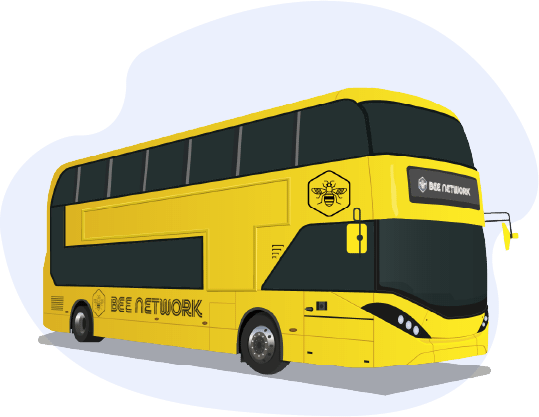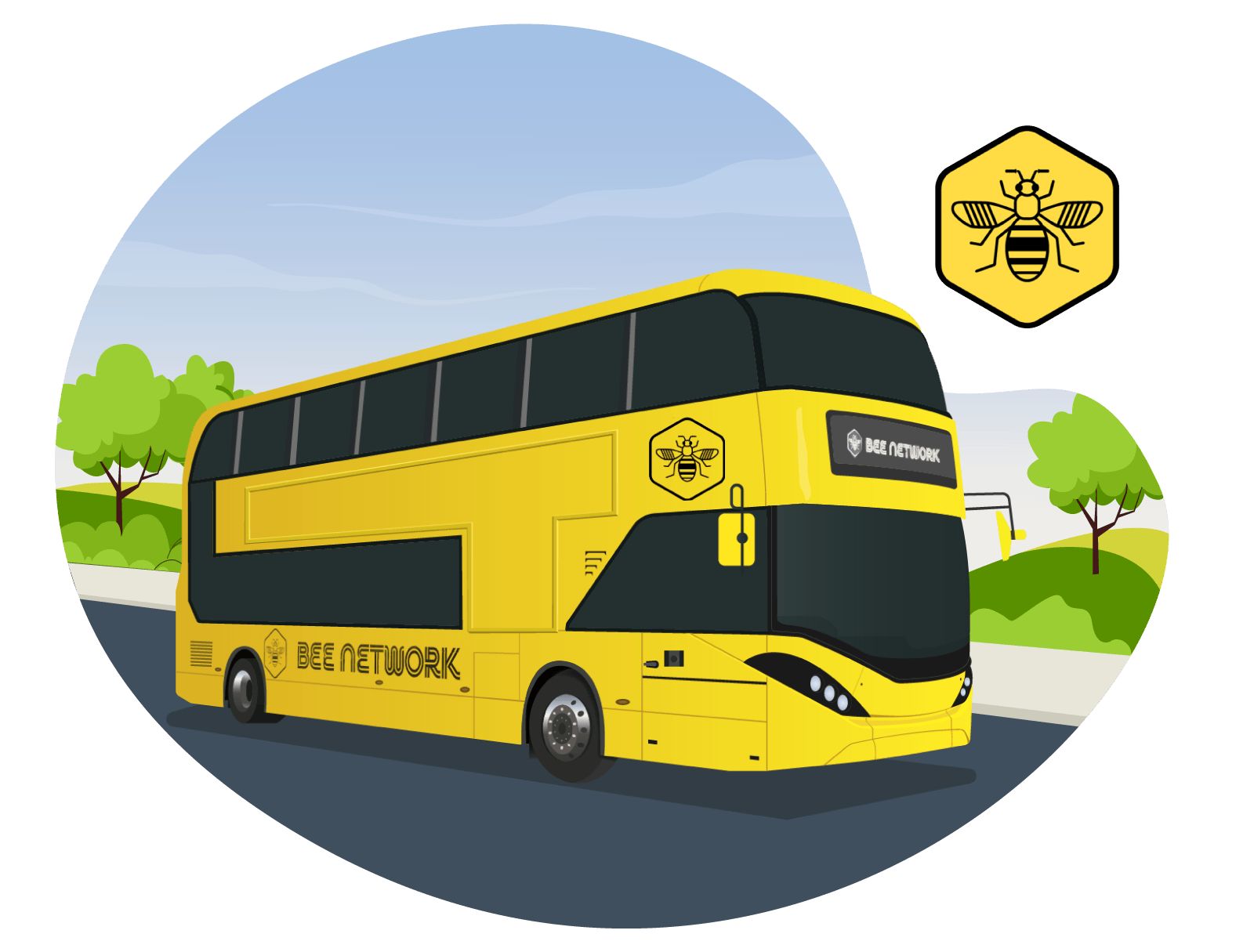The UK bus world saw its biggest change in almost 40 years when on Sunday, 24th of September, the mayor of Manchester (and former MP and Labour leader candidate), Andy Burnham, saw the very first BEE network bus leave the bus depot in the very early hours of the morning, when the very first franchised bus was launched that would serve the communities of Bolton and Wigan. Indeed, it is way back in 1986 that the UK bus industry was privatized by Mrs. Thatcher, when the Iron Lady decided that the bus and coach sector needed a healthy dose of capitalist competition. Ironically, the key entrepreneurs that rose to the surface actually emerged from within the UK bus industry itself with the knights of the realm, Sir Moir Lockhead (First Group) and Sir Brian Souter (Stagecoach), proving that they had the Dragons’ Den touch.
But all things come to an end, as they have in Manchester, as all the buses in the region came back under public ownership in a deal that the mayor hopes will see cheaper and easier travel and better connections to the tram network. It is interesting to note that bus use has significantly dwindled in Manchester since 1986, from 355 million trips a year when services were deregulated to 182 million before the Covid epidemic struck. To be fair, bus services have been declining for different reasons all over the country, especially in the last 19 years. In the case of Manchester, the model adopted sees the services franchised to private companies (Go-Ahead, Rotala, Stagecoach, Firstbus) who will operate the services, although the local authority will set the fares, timetables, and routes. The key question is just how the local authorities can keep costs under control. However, the mayor insists that the new network will provide the residents with a much better service and improve the quality of life for residents for many years to come.
Hats off to all the operators who launched the network; it was behind the scenes a military-style operation with drivers being transferred to different companies, to new and different depots, to operate, in certain cases, new and modified routes. Early reports suggest that the transition has been reasonably smooth with some positive public feedback. One passenger was quoted as saying that they don’t just want a better service, but they want it more regularly; it is not only about the cheaper fares.
Indeed, Graham Vidler, the chief executive for the Confederation of Passenger Transport, stated that buses account for three-quarters of all public transport in Greater Manchester, and there is room to grow the role of the bus even more. He also went on to say that what is also needed is a package of bus priority measures which reduce congestion, speed up journey times, keep fares low, and ensure buses are reliable, factors we know are important to passengers.
The bus case is elevated by the key role that it has to reduce carbon emissions, and serious investment has been made in electric buses, with the very first bus that rolled out being fully charged for duty. The current government has so far been supportive of the bus’s role, especially the essential role that the humble omnibus played during the pandemic, but it will be interesting to see what the Labour party’s view will be if they win the next election. Initial thoughts are that the franchising route is an attractive option, as is the quality partnership approach that already exists in certain parts of the country like Nottingham, Brighton, Reading, etc.
Already Merseyside and West Yorkshire have expressed their desire to join the party and take over the ownership, all of which is fine and dandy. However, the big question is this: Who will pay for the services in the future? If the bus industry remains a hostage to fortune for local authority funding, then it is unlikely to be sustainable. What needs to happen is a change of mindset, and as Mayor Andy said, buses, like water and electricity, are essential services that the state needs to fund. We watch with great interest to see what happens. Ding ding, all change, please.


Written by Austin Birks






